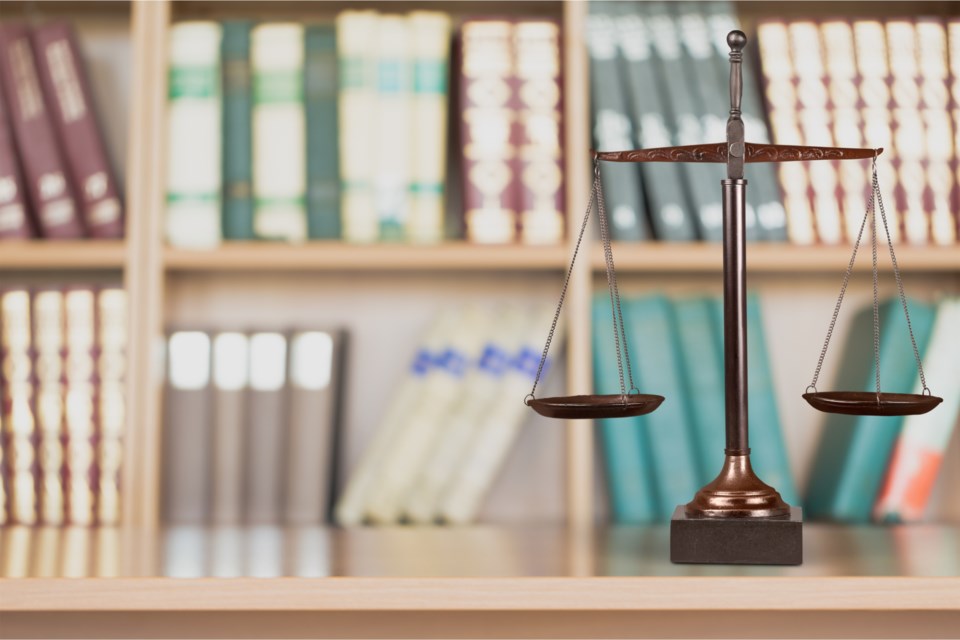Another lawyer of the province’s Queen’s Counsel has been suspended by the Law Society of B.C. after improperly conversing with potential jurors in a parole-related hearing for a convicted murderer.
Criminal defense lawyer Glenn Orris is the third QC-designated lawyer to be suspended this year, after admitting to the misconduct, according to a consent agreement published Dec. 1 by the society, the legal industry’s self-governing regulator.
Those suspensions come amid a review of the QC protocols, which presently do not include provisions to revoke the designation.
Orris’ three-week suspension is a result of discussions he had with potential jurors waiting outside a courtroom.
Orris was asked questions about the process, which was a hearing to proceed with a “faint hope” parole process for his client.
The Crown counsel lawyer overheard Orris answering questions about the hearing and told him it was not appropriate.
“Mr. Orris advised that it was not something he wanted to do and that he was just answering their questions with information they had already been told or was not in issue,” according to the agreement.
The jurors then became more vocal, prompting further responses from Orris.
“A male member of the jury panel made a comment, in a loud voice, to the effect that ‘He had two friends who had both been convicted of murder, who had been released, and then killed again.’ Believing the comment to be inflammatory and prejudicial to his client and his application, Mr. Orris answered to the effect ‘I don’t have any knowledge of that, sir. Such a thing may have occurred, but it is, in my experience, very rare,’” the society noted.
“Another comment was made by either the same jury panel member or a different male jury panel member to the effect of ‘We should still have the death penalty.’ Believing the comment was a criticism of his client and prejudicial to his application, Mr. Orris responded with words to the effect that he was glad he was working in a justice system that did not have the death penalty,” the agreement said.
The sheriff informed the judge about possible juror ineligibility based on the latter exchange while Crown informed the judge about Orris’ initial conversations.
As a result, the judge discharged the jury panel and adjourned the selection of the remaining jurors, according to the agreement.
“Mr. Orris was cooperative and apologetic when the matter was brought to the attention of the trial judge,” noted the society.
Orris had one previous reported brush with improper engagement with jurors while working defence in a 2012 murder trial. He was cleared by the judge after being found to have made small talk with a female juror at a gym.
How does a lawyer get the QC designation?
To obtain a “QC” designation, the B.C. Attorney General’s website states a lawyer must “demonstrate professional integrity, good character and excellence in the practice of law.” Such excellence could be determined by several conditions such as being a gifted practitioner, demonstrating leadership and working in the field of legal education.
A spokesperson for the Ministry of the Attorney General has stated in the past it is aware of recent suspensions of QC-designated lawyers.
“Separate from these recent events, an informal review of the Queen’s Counsel Act and QC appointment process was already underway with input from the QC advisory committee, including seeking general feedback about the potential for a process for the revocation of the designation,” the ministry told Glacier Media.
QC appointments do not have any fixed term, and do not expire.
In June, the society suspended Surrey lawyer Narindarpal Singh Kang, who was charged with assault and mischief in June 2018 following an altercation with his wife. Kang had his charges stayed but admitted to conduct unbecoming of the legal profession.
The society also suspended Â鶹´«Ã½Ó³»lawyer Paul Doroshenko for two months after he admitted to professional misconduct.
QC applications are reviewed by an advisory committee that includes: the Chief Justice of British Columbia; the Chief Justice of the Supreme Court of British Columbia; the Chief Judge of the Provincial Court; two members of the Law Society appointed by the Benchers; the President of the Canadian Bar Association, B.C. Branch; and the Deputy Attorney General.
Some Canadian provinces have stopped making such appointments.


